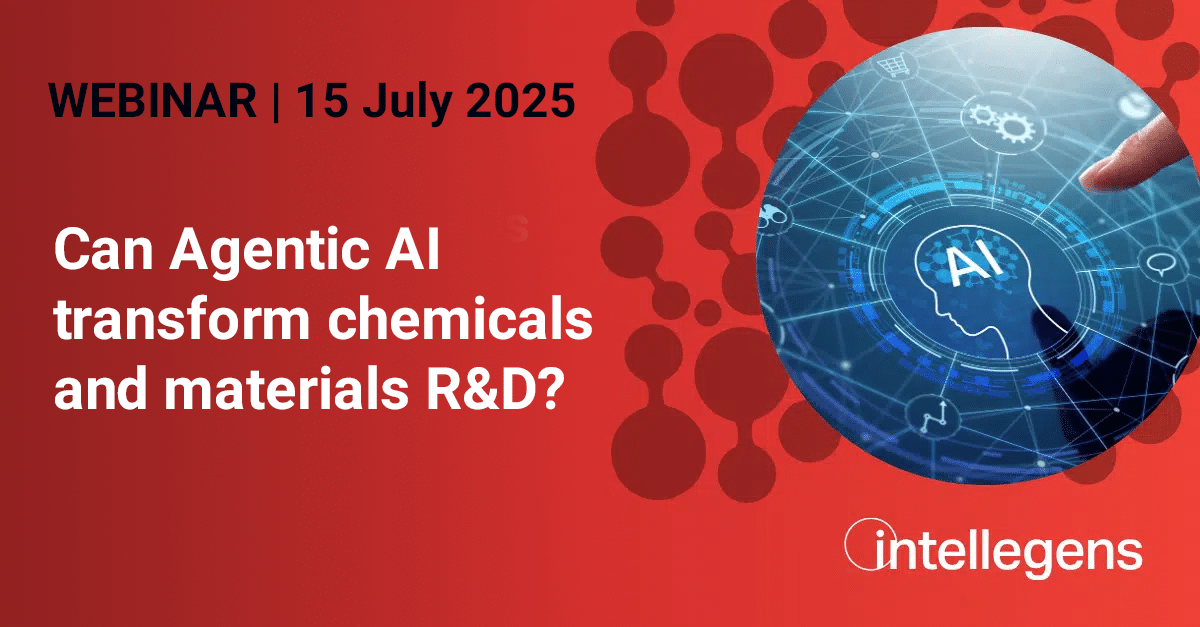The turn of the year is a time to take stock. To think big thoughts and make resolutions based on your conclusions. We’ve been doing a bit of that recently, with a discussion session on key industry trends at our recent Focus Group meeting.
The big challenges facing the industries that we serve, indeed the world, loomed larger in 2022. Three interlinked problems seem particularly noteworthy – global energy and supply chain crises, the urgent push towards net zero, and the need for faster innovation. How can we respond in 2023?

Energy and supply chains. The pandemic and its aftermath gravely disrupted global supply chains and, combined with the war in Ukraine, have driven prices for energy to record highs. This has profound impact on the economics of the chemicals, materials, and manufacturing industries. These sectors need to optimise energy- and resource-intensive processes to reduce unnecessary consumption. They also want to increase resilience to future volatility with better models of those processes that will enable them to find alternatives more rapidly when current approaches become too slow or expensive.
Net zero. We discussed this topic recently on this blog, and it needs to remain central in all thinking about R&D for the process and manufacturing industries. If we can take one positive from the energy and supply chain crises, it is perhaps that businesses are further prioritising objectives that align well with sustainability goals.
Faster innovation. We won’t solve any of these problems with one huge breakthrough. They require a continuous improvement mindset, and the ability to respond to changing circumstances as fast as possible, using all available data and knowledge.
How can Machine Learning help?
The discussion at our Focus Group confirmed that these big picture concerns are driving the practical, technical objectives of the R&D teams that use the Alchemite™ technology, requiring them to find new ways to perform and improve. At that meeting, our CEO, Ben Pellegrini outlined seven ways that we think machine learning can help:
1. Optimizing yields – at the Focus Group, we heard from one user organisation that recently applied machine learning to identify a 4% improvement in yield in one of their processes. A great continuous improvement example.
2. Product grade prediction – machine learning can identify new product solutions that might otherwise be missed.
3. New product development – adaptive design of experiment can help you get innovations to market faster.
4. Improving safety – we’ve previously discussed on the blog how machine learning can help to meet changing regulatory requirements relating to the environment, health, or safety.
5. Greater insights – machine learning can find information that was previously hidden in your data. Check out last week’s webinar with Yili for the most recent example.
6. Reformulation – find alternatives, faster and at lower cost by predicting the likely impact of changes in the ingredients or process parameters before investing in costly, time-consuming experiment.
7. Sharing knowledge – capture valuable knowledge and make sure that is re-used in future projects.
This how Intellegens and our technology will be helping to meet the big challenges in 2023.
We wish you all the best meeting your particular challenges and every success for the New Year.
Find out more:
These issues are explored in a little more depth in this recent article in Process Industry Informer.
Report from the recent Alchemite™ Focus Group

